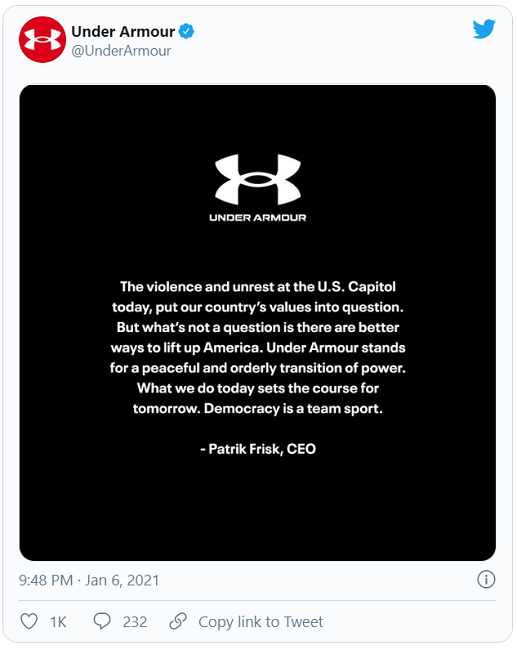2021 – Brands as agents of change

Recommended articles
On related topics
The new year came in like a lion, but, with the U.S. presidential inauguration behind us, there has come a collective sigh — a moment. In this moment, brands must invest time in setting strategy on how to prepare for increased activism and advocacy, championing causes that are meaningful to their consumers and society at large. Becoming agents of change.
Consider, for instance, the Super Bowl. For the first time in 37 years, Budweiser did not advertise during the live broadcast. Instead, the brand put resources towards vaccine awareness campaigns. Their hope is to help support the reopening of restaurants and small businesses (their key stakeholders) by encouraging people to learn more about the vaccine.
This move, along with those of others like Coke and Pepsi, speaks directly to the fact brands are wielding their powerful influence to make impactful changes. It also speaks to the growth of a Davos 2021 focal point: stakeholder capitalism.
Brand activism: desirable, but polarizing
Although data/behavior points towards consumers wanting to support and engage with brands that have purpose and are socially active, these decisions and actions can be highly polarizing. Sprout Social conducted a survey asking consumers why they want brands to take a stand. The primary reasons: they believe brands can create real change given they reach such large audiences and they are fundamentally more trusted than public officials and the news in many instances.
The causes that an organization supports — or opts not to — and the actions they take will largely define who their future customers, employees and investors are as people align to their own beliefs/value systems.
Let’s look at a recent post from Under Armor in response to the violent attacks on the U.S. Capitol.

While the feedback on Twitter was mixed, it was clear the brand felt confident with their decision to speak out. One reason for that confidence is the Brand’s clear set of values that are beautifully articulated below and map back to the positions they take publicly:
Stand for equality:
The power of sport is fueled by every race, nationality, gender, orientation, and creed you can imagine all over the world. We’re proud advocates for equality, justice, and opportunity for all. Together we will be a force for good.
Stay true:
The only way we know how to be is transparent. You see our triumphs and our shortcomings. That’s okay because our willingness to show our imperfections helps us learn and grow as a team.
Fight on together:
We will fight for each other and the communities we represent as a team. And we’ll never quit, because we know adversity only makes us stronger, and strength leads to victory that is oh so sweet.
Wading corporate socio-political stances deliberately
For brands pushing themselves to join the social advocacy or activism, they should expect a future of increased backlash and polarization from those who don’t share their views. They must wade into these waters authentically and deliberately, by consider the following:
Risk assessment:
When a brand makes a statement, they need to assess the risk. Will the action cause existing stakeholders to react negatively? And, if so, how will the brand respond. Does the statement align with the mission and value system of the organization? Is the statement from and individual within the organization or from the brand?
Know your audience:
Employee and customer activism often set the stage for a CEO agenda. Brands know that people will disagree with your stance. With employee and customer activism, companies need to consider the personal attitudes and beliefs. Take the time to meet with individuals across the organization and survey your customer base regularly.
Back up words with actions:
2021 will be the year of action and conscience. Put plans in place prior to stepping into a conversation. Intention to do good does not equal doing good.
In 2021, business will begin to be defined by societal action and impact — brands as agents of change.
Annie Perkins is a former Managing Director at SHIFT Communications, sister company of NATIONAL Public Relations



